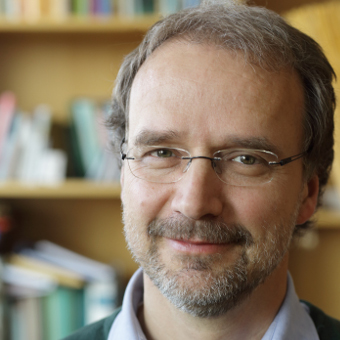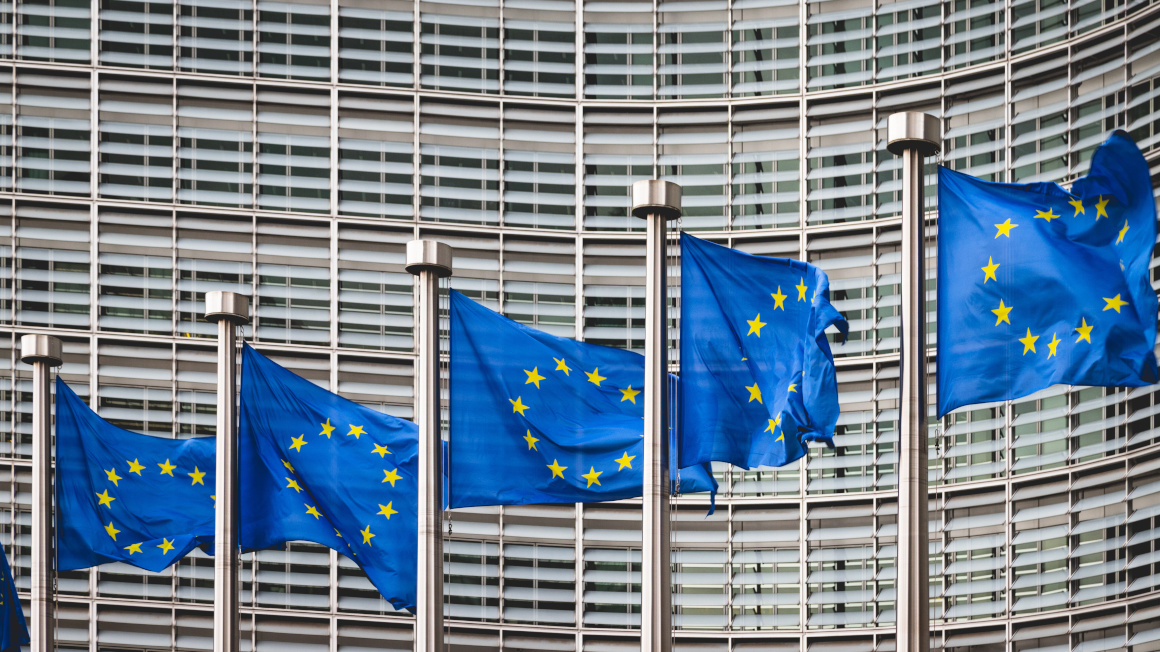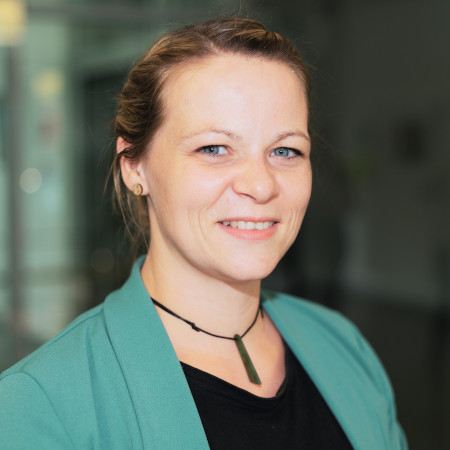Creating regional bioeconomy areas
Ulrich SchurrProfession:
PhD Biologist
Position:
Head of the Institute of Plant Sciences at Research Center Jülich (IBG-2); Coordinator of the Bioeconomy Science Center; Scientific Coordinator of the Model Region BioökonomieREVIER Rheinland

Profession:
PhD Biologist
Position:
Head of the Institute of Plant Sciences at Research Center Jülich (IBG-2); Coordinator of the Bioeconomy Science Center; Scientific Coordinator of the Model Region BioökonomieREVIER Rheinland

Ulrich Schurr wants to turn the Rhenish lignite mining area into a model region for a sustainable bioeconomy. To achieve this, he is relying on the regional strengths and conditions to master the structural change.
The coal phase-out has been decided. For regions like the Rhineland, it is now time to rethink and create new prospects. With the aim of moving away from lignite and towards a bio-based future, the BioökonomieREVIER Rheinland (“BioeconomyAREA Rhineland”) was founded a year ago. It is funded by the Federal Ministry of Education and Research (BMBF) with several million euros via the Strukturwandel ("Structural Change") program. The ambitious project is coordinated by Ulrich Schurr, head of the Institute of Plant Sciences at the Research Center Jülich. Schurr, who holds a doctorate in biology, is convinced that the former coal-mining area has the best prerequisites for making the Rhenish mining area a model region for a sustainable bioeconomy. In order to bring research approaches more quickly into the economy, 15 innovation laboratories were recently established.
What are the region's strengths for driving forward bio-based change in the Rhineland?
As a result of the decision to phase out lignite, the Rhenish mining district is dependent on new sources of value added and income. This is even more so against the background of the Covid-19 pandemic. In particular, the sustainable use of biological resources in conjunction with the expansion of renewable energies can make an important contribution to a sustainable economy. For implementation, the focus is shifting to the regions. Due to their natural and socio-economic boundary conditions, region-specific bioeconomies will develop which reflect regional conditions. In the Rhenish mining area, the outstanding scientific and economic strengths form the basis of the transformation. Highly productive agriculture as a supplier of healthy food and biogenic raw materials, with its central role for landscape and land use development in structural change, is to be made future-proof with new methods and procedures. Traditional paths of use such as the food and paper industries will be innovatively developed further, and new recycling paths for materials and chemicals in conjunction with the energy sector, which focuses on renewable energy, will be promoted and new markets opened up.
Where do you see the focus of your work as scientific coordinator?
The model region of the Strukturwandel Initiative BioökonomieREVIER Rheinland was initiated by the Research Center Jülich, but is not limited to science. One task is nevertheless to improve cooperation between universities and research centers. In addition, the excellent academic innovation landscape along the entire economic value chain needs to be better networked and real entrepreneurial and municipal challenges need to be addressed jointly in regional partnerships. In order to promote such cooperation and to build up a regional knowledge base, we have set up the BioökonomieREVIER Rheinland coordination office. It networks, informs and coordinates the transformation process at the interface between science, agriculture, business and other regional actors in consensus with the regional economic and structural program.
What measures are needed to ensure that structural change in the Rhineland is successful?
It will be crucial that the region develops a common vision. This must not necessarily lead to the same bioeconomy throughout the entire region. In any case, we are striving for regionalization of the bioeconomy on both a large scale (e.g. the Rhenish mining district) and a small-scale scale. The potentials of economic areas, political framework conditions, biogeographical conditions, knowledge regions and flows, but also civil society perspectives form the framework for the respective type of bioeconomy. With regard to the bioeconomy's contribution to structural change, it is of great importance to actively involve regional companies and, above all, their operational challenges and innovation needs through close links with research institutions and agriculture. The prospect of innovative business models then also attracts external investors and private investment to the region. In this way, jobs and training positions can be maintained and new sources of income can be developed. Involving civil society at an early stage in shaping the region is also a success factor that leads to greater satisfaction, especially in a region marked by years of conflict. If all this succeeds, the Rhenish mining district can develop a supra-regional, even international appeal as a model region for sustainable economic activity with the associated marketing opportunities.
What role do innovation labs play in this process? What impulses can they give?
First of all, it is important to note that the innovation laboratories set up as part of the BMBF project BioökonomieREVIER Rheinland represent an important addition to the already excellent innovation landscape in the Rhineland. They enable the rapid translation of research ideas into economic application and further consolidate the bioeconomy innovation ecosystem. Through them, promising research approaches with very good economic implementation possibilities are further developed. The findings are intended to quickly create added value and new, innovative jobs. The aim here is not "only" to gain scientific knowledge, but also to show that closer integration and knowledge transfer from research to industry can lead to greater added value and sustainability. In the medium term, they should also be available to SMEs, start-ups or other interested parties from industry and agriculture and generate new bio innovations.
Which projects are currently being discussed within the framework of the innovation laboratories?
The innovation laboratories in the BioökonomieREVIER project work in various thematic fields. These include innovative approaches in breeding and agriculture through digitalization and automation, renewable raw materials and the use of marginal land in open-cast mining, bio-based raw materials for industry and the use of residual and waste materials, and the coupling of the bioeconomy with renewable energy systems. Among other things, field laboratories will be set up at locations that are probably unique in the Rhine region in terms of their geographical proximity. One example is the so-called Brainergy Field Lab - a high-tech field technology center with application fields in the fields of agricultural robotics, agricultural photovoltaics or phenotyping. It is connected to an excellent IT infrastructure through cooperation with the neighboring University of Applied Science Aachen and offers students attractive fields of work on site. Further topics of the innovation laboratories include the recycling of residual materials from the food and waste management industries as well as the biotechnological production of high-quality chemicals and active substances for the pharmaceutical industry. Nature and resource conservation are also important topics in the BioökonomieREVIER. It is always important for us to establish self-sustaining structures as soon as possible in order to avoid making change dependent on funding scenarios in the long term.
Interview: Beatrix Boldt


